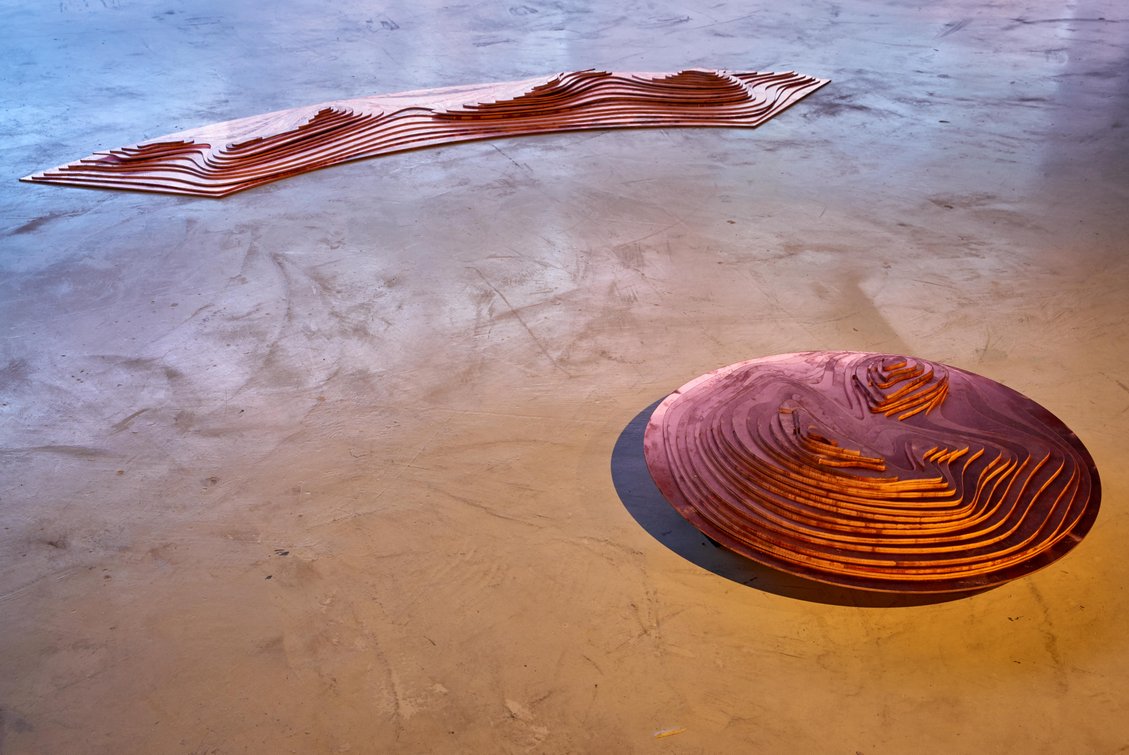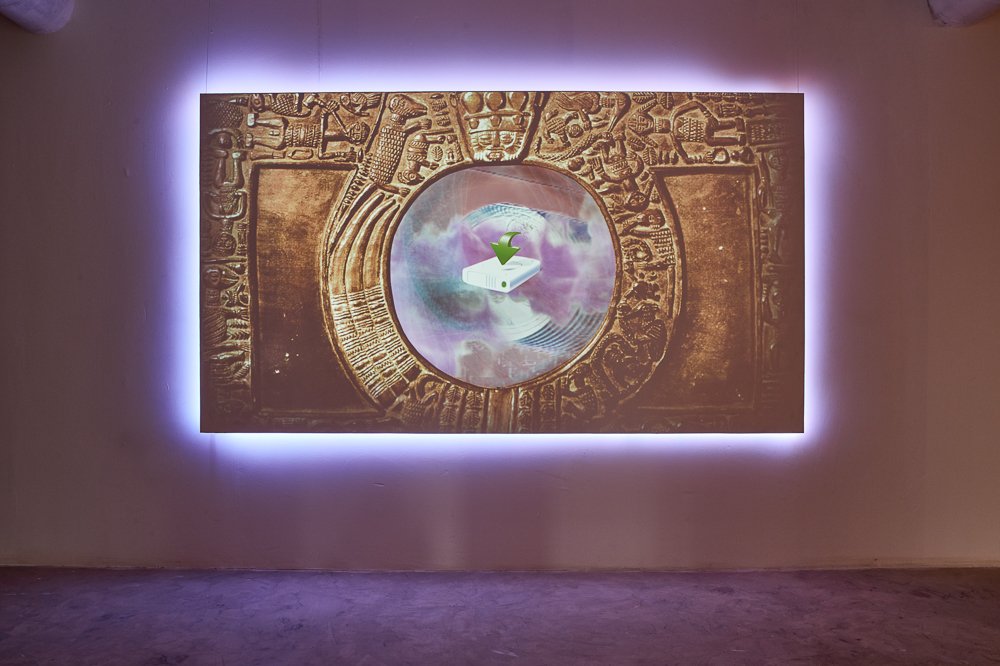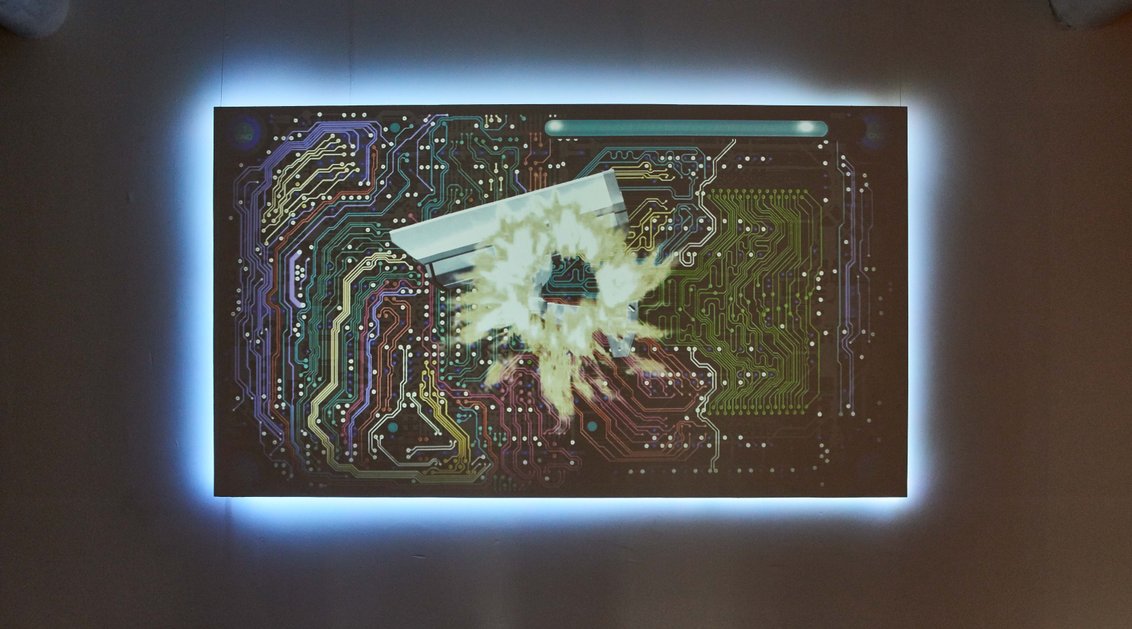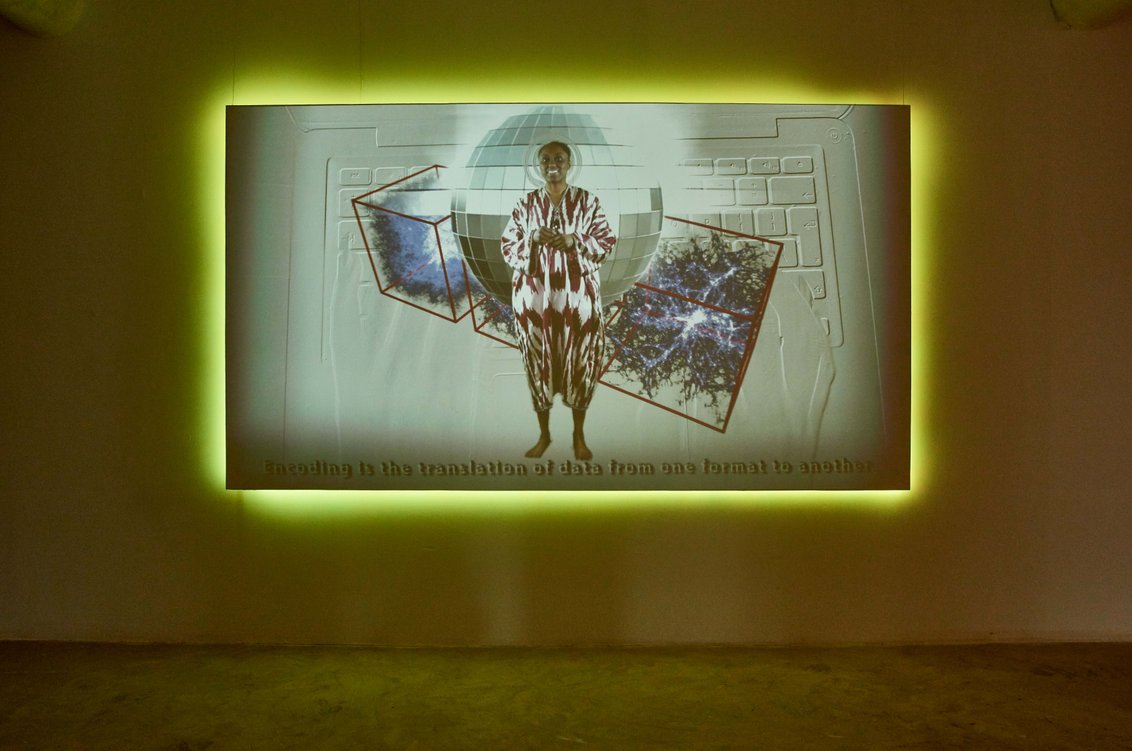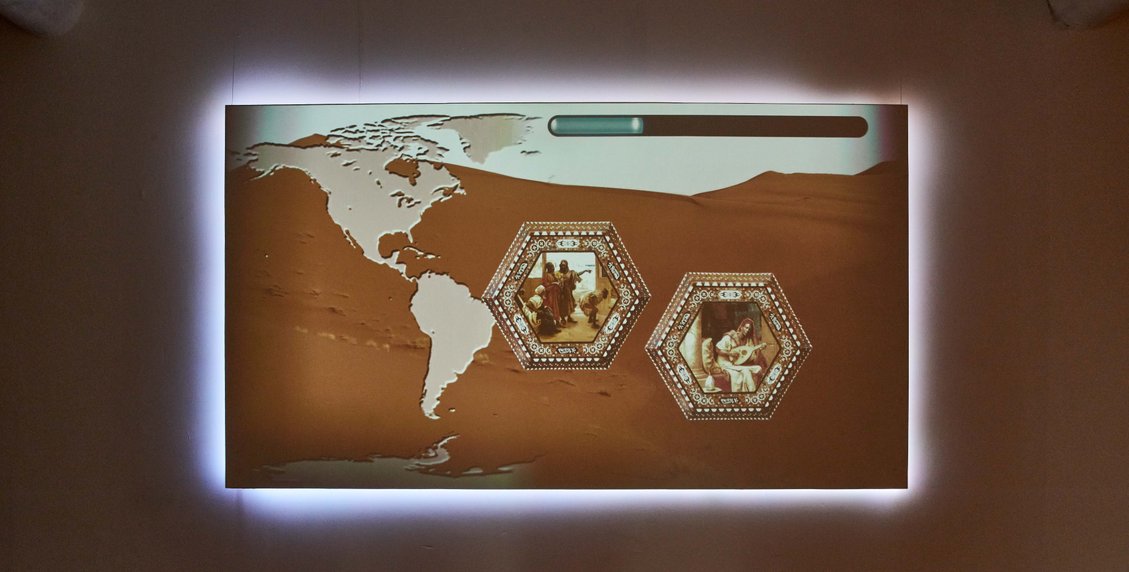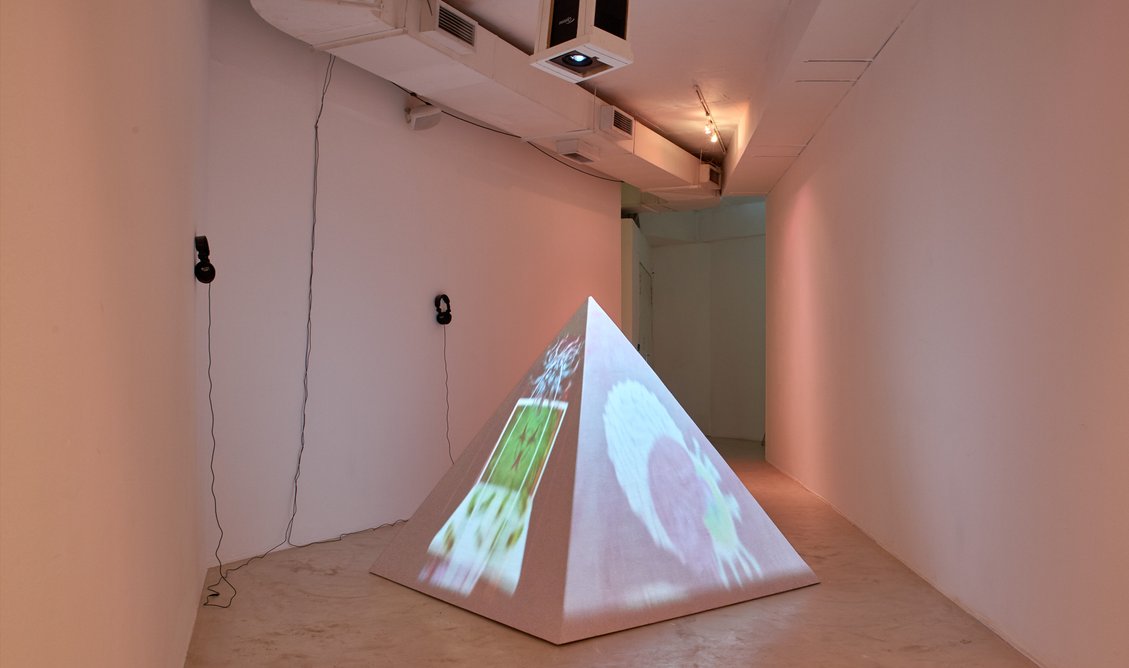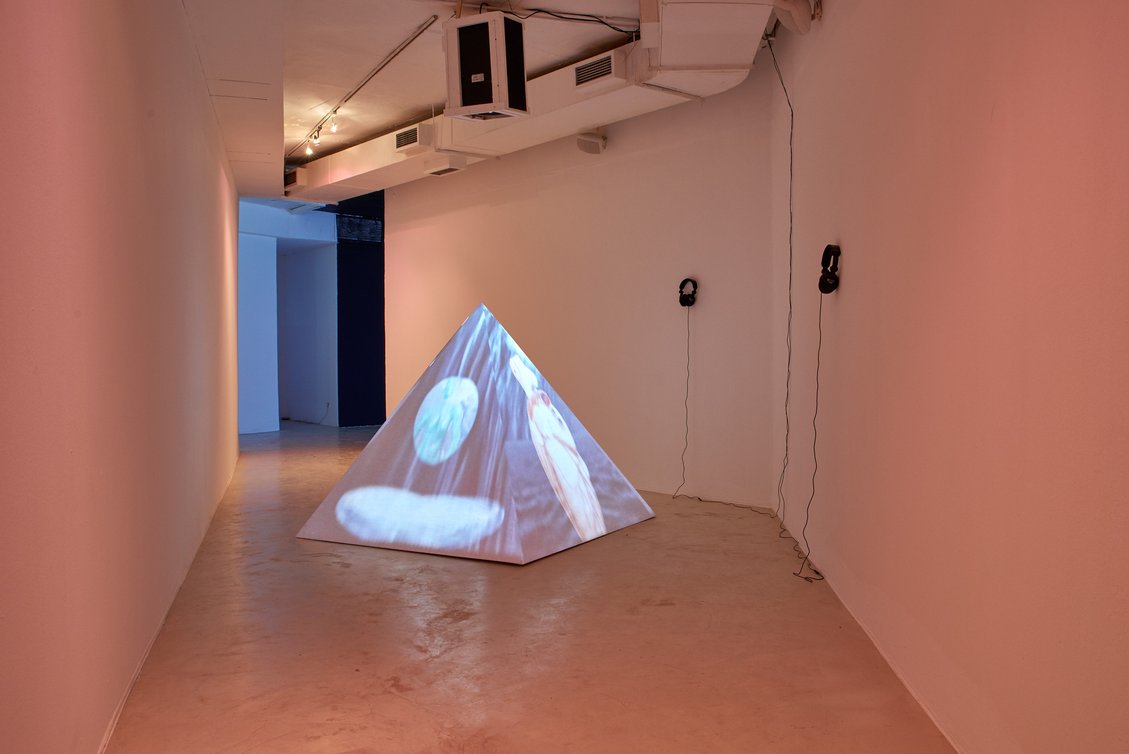Exotic Trade is love is anger is pain is healing on screens
Exotic Trade is hardrive memory is forgotten data is unearthed potential
Exotic Trade is a diagnosis is a remedy is caring
Exotic Trade is trying
Exotic Trade is for you is for us
Exotic Trade is sharing fluids of survival
Exotic Trade is wet and juicy love
Exotic Trade is harnessing the power of vibration
Exotic Trade is contradiction is complicity exposed
Exotic Trade is struggling with self-love
Exotic Trade is self-commodification is self-realisation is self-doubt
Exotic Trade is me for sell
TABITA REZAIRE - EXOTIC TRADE
GOODMAN GALLERY JOHANNESBURG 18 MAY – 17 APRIL 2017
The Internet is exploitative, exclusionary, classist, patriarchal, racist, homophobic, transphobic, fatphobic, coercive and manipulative. We need to decolonise and heal our technologies. Healing is resistance.
Tabita Rezaire
Exotic Trade is Tabita Rezaire’s first solo exhibition in which she deploys ‘digital healing activism’ as a strategy to envision decolonial technologies through which we can ‘holistically connect to ourselves, to one another, to the earth and to the multiverse’ (Rezaire).
This otherworldly exhibition digs into the histories, politics and memories of information and communication technologies (ICT), exposing the violence and erasure carried by our current networks and unearthing possibilities for spiritual technologies.
Through video installations and digital prints, the artist responds toa perceived need to reconnect body, ‘womb-mind’ and spirit to heal the ‘oppressive colonial hierarchies of knowledge systems which define the dominant narratives of our time’ (Rezaire).
Exotic Trade explores ‘alternative’ means of receiving, creating and sharing information through spiritual interfaces by accessing what Rezaire terms the ‘cosmos database’ – from communicating with ancestors to embracing water, the womb and teacher plants as ‘primal-portals’ for ‘downloading’ knowledge.
In the show, Rezaire draws parallels between the layout of submarine optic cables (the very architecture of the Internet) and colonial trade routes to point to the powerful symbolism underpinning ‘electronic colonialism’ whereby the Internet has literally been built on routes of Black pain.
For Rezaire, ‘the irony is that the technology of the Internet would not exist without the influence of African spiritualities because the origin of computing science has, in fact, been traced back to African divination systems’. Rezaire uses screen interfaces within her practice to remember the ‘space-time’ where technology, the biosphere and the spiritual world connect.
Exotic Trade will be arranged in the shape of a womb to create a ‘nurturing space that connects us to the source’, says the artist. This composition relates to the intention behind key pieces, which celebrate the resilience of Black womxn in the face of colonialist and capitalist exploitation. Rezaire seeks to mark the contribution of Black womxn to the advancement of medical science and technology – often unwillingly and painfully, such as with gynaecology
– and confront the erasure of Black womxn from the dominant narrative of technological achievement.
Rezaire grapples with inherited traumas that burden Black womxn’s ‘soul-bodies’ and re-construes Black, femme erotic power as a creative and transformative energy. Her mission is ‘to reimagine a politics of pleasure driven by unapologetic desire, spiritual awakening, love and compassion’ (Rezaire).
By undertaking a dedicated excavation of the healing potential of forgotten technologies and asserting their relevance to our present age – a process that Rezaire calls ‘network archaeology’ – Exotic Trade advocates for the possibility of nurturing a ‘mind-body-spirit-techno consciousness’ that counters our current state of disconnection.




